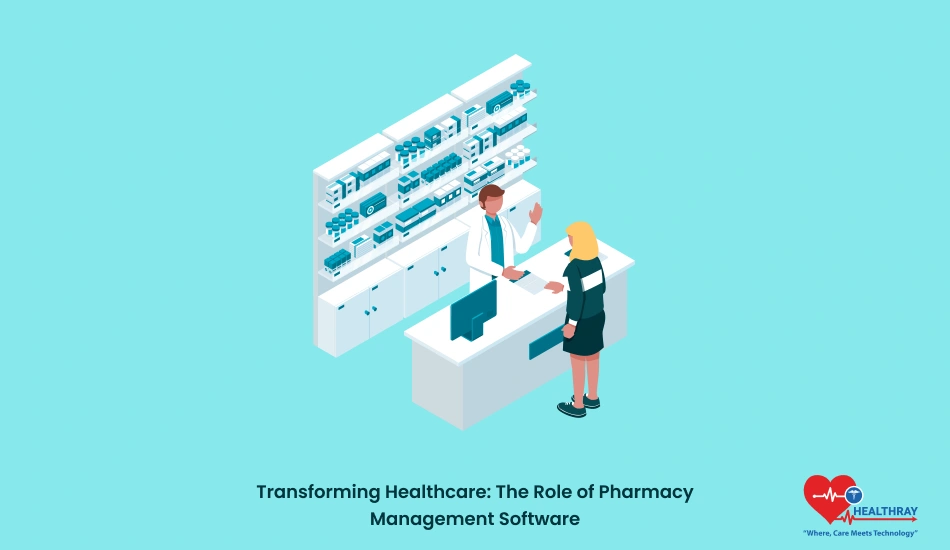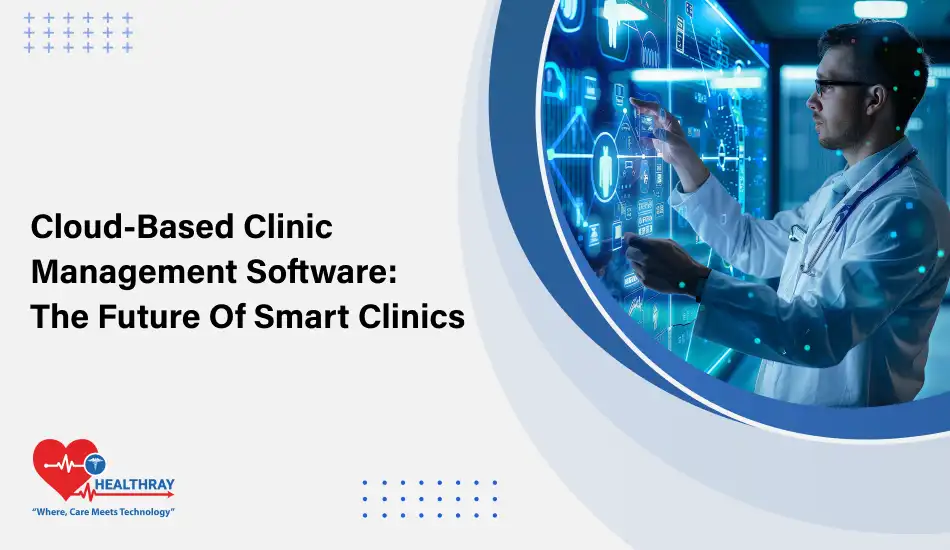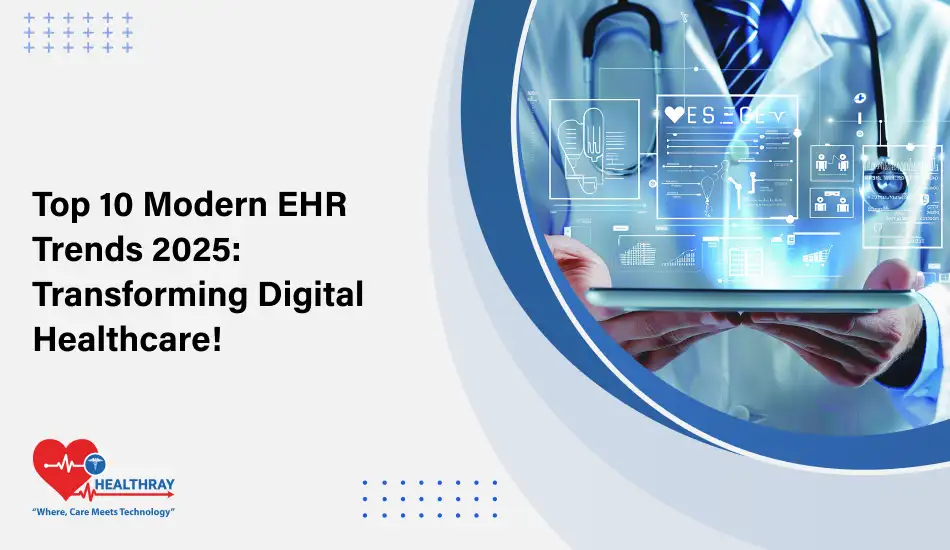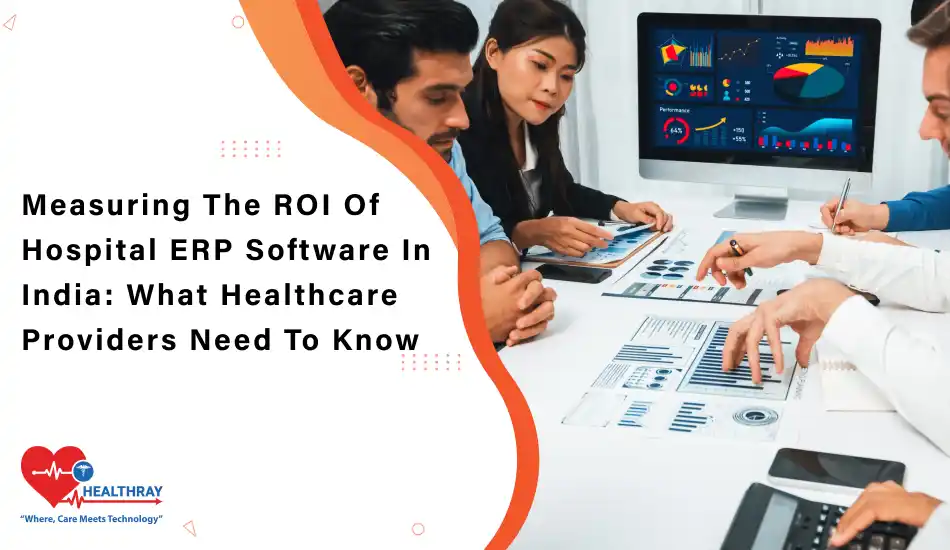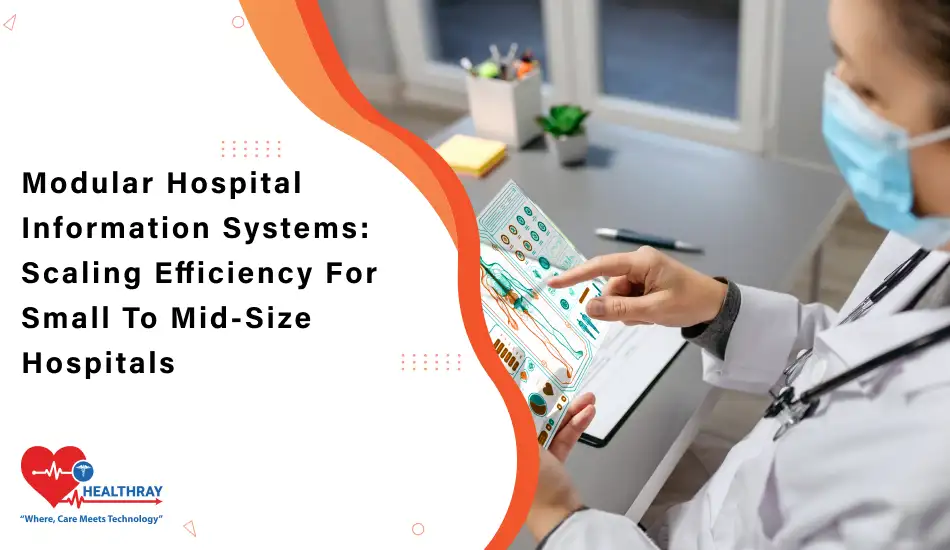Healthcare is evolving, and pharmacies play a critical role in this transformation. Managing prescriptions, inventory, billing, and patient records efficiently is essential. That’s where pharmacy management software steps in. It’s not just a tool—it’s a game-changer for improving workflows, accuracy, and patient care.
Pharmacy management system automates routine tasks, streamlines operations, and connects the dots between healthcare professionals, pharmacists, and patients. But this isn’t just about automation; it’s about creating a more connected and patient-focused healthcare system.
In this post, we’ll explore how this software impacts healthcare professionals, pharmacy managers, software developers, and hospital administrators. Whether you’re focused on improving patient outcomes, reducing errors, or enhancing efficiency, there’s something here for you.
Understanding Pharmacy Management Software
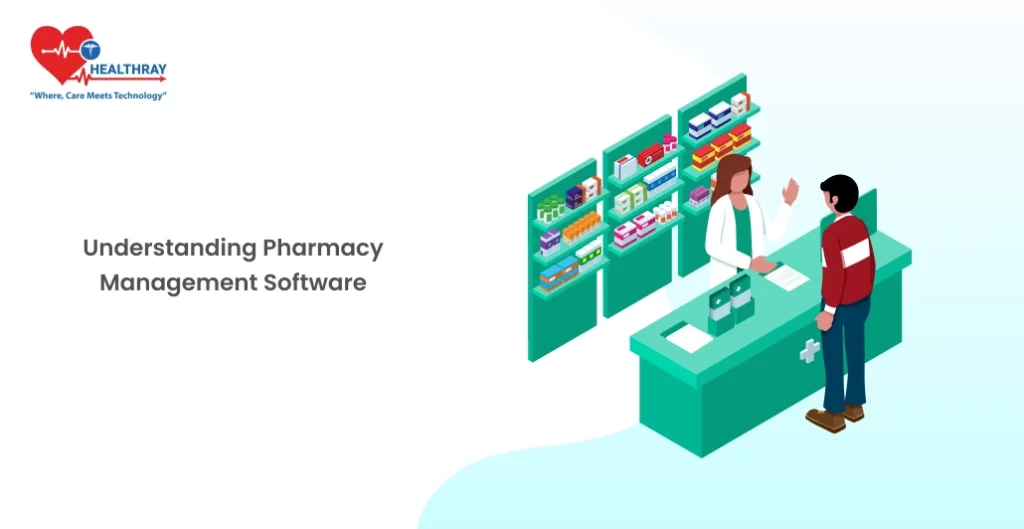
Pharmacy management software is more than just a digital upgrade for pharmacies; it’s a critical tool that reshapes how pharmacies operate. At its core, this software is designed to handle daily tasks such as prescription processing, inventory tracking, billing, and maintaining patient records. But its capabilities go far beyond that.
Here’s what it brings to the table:
- Automation of Repetitive Tasks: Manual work takes time and increases the chance of errors. Pharmacy management software automates repetitive tasks like refilling prescriptions or updating inventory levels. This saves time and ensures accuracy, allowing pharmacists to focus more on patient care.
- Improved Patient Safety: By tracking a patient’s medication history and flagging potential drug interactions, the software significantly reduces risks associated with prescribing errors. This creates a safer environment for patients and gives healthcare providers confidence in their recommendations.
- Seamless Integration: Modern pharmacy software integrates with other healthcare systems, such as electronic medical records (EMRs) and billing platforms. This connectivity ensures that information flows smoothly between doctors, pharmacies, and patients, eliminating bottlenecks.
- Regulatory Compliance: Pharmacies deal with strict regulations regarding controlled substances, data security, and reporting. With built-in compliance tools, the software helps pharmacies adhere to these requirements while reducing the administrative burden.
This foundation sets the stage for understanding how pharmacy management software benefits different stakeholders in healthcare. Each group—healthcare professionals, pharmacy managers, software developers, and hospital administrators—sees distinct advantages in adopting these systems.
Benefits for Healthcare Professionals

Healthcare professionals are at the forefront of patient care, and pharmacy management software is a vital tool that supports their work. It bridges the gap between pharmacists, doctors, and patients, ensuring better outcomes and streamlined processes. Here’s how it benefits them:
Real-Time Access to Medication Histories
Imagine a doctor trying to prescribe medication without knowing a patient’s current prescriptions. The software eliminates guesswork by providing an up-to-date medication history. This reduces the risk of adverse drug interactions and ensures treatments are safe and effective.
Improved Communication with Pharmacists
Pharmacy management software integrates with electronic health records (EHRs) and enables real-time communication between healthcare providers and pharmacies. Physicians can send prescriptions electronically, minimizing errors caused by handwriting or miscommunication.
Better Insights for Decision-Making
Advanced systems offer analytics and reporting features. These tools help healthcare professionals monitor patient compliance with medications and spot trends that may require adjustments to treatment plans.
Enhanced Patient Trust
When healthcare professionals use technology that ensures accuracy and safety, it builds trust with their patients. Knowing that their doctor or pharmacist is leveraging the latest tools gives patients confidence in their care.
This software doesn’t just help with prescribing medications; it fosters a collaborative environment where healthcare professionals and pharmacists work together for the patient’s benefit. It’s a win-win for both patients and providers.
Advantages for Pharmacy Managers
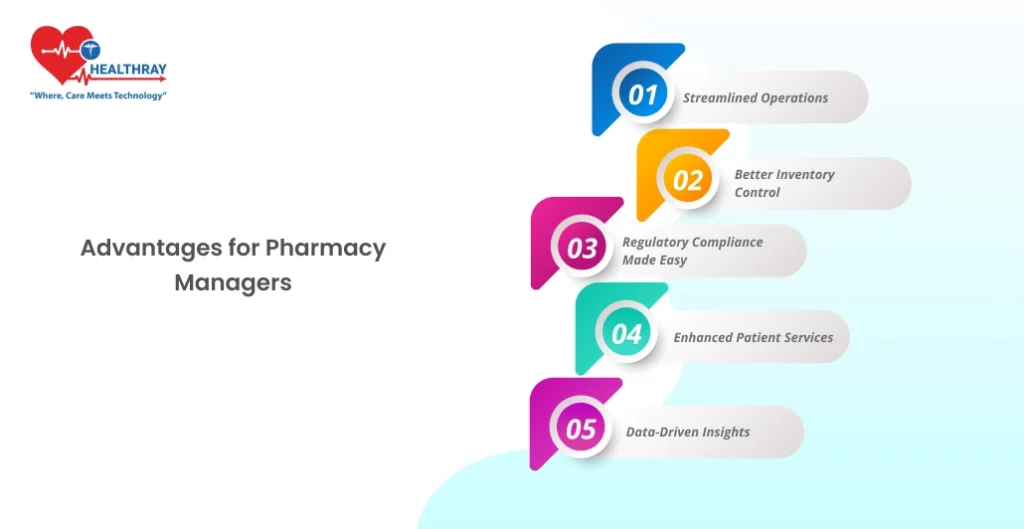
Pharmacy managers juggle multiple responsibilities, from ensuring smooth daily operations to staying compliant with regulations. PMS System simplifies their tasks, making operations more efficient and allowing them to focus on strategic priorities. Here’s how it benefits pharmacy managers:
Streamlined Operations
Managing inventory, tracking prescriptions, and overseeing billing can be time-consuming. The software centralizes these functions, automating repetitive tasks and minimizing errors. This means smoother workflows and fewer disruptions.
Better Inventory Control
Overstocking and stockouts are common challenges for pharmacies. Management software tracks inventory in real time, alerts managers about low-stock items, and predicts demand based on usage trends. This keeps shelves stocked with the right medications.
Regulatory Compliance Made Easy
Pharmacies operate in a tightly regulated environment. The software ensures compliance with legal requirements by maintaining accurate records, generating reports, and safeguarding sensitive data. This reduces the risk of fines or other penalties.
Enhanced Patient Services
With automated processes handling routine tasks, pharmacists have more time to focus on patient consultations and personalized care. This elevates the pharmacy’s reputation and boosts customer satisfaction.
Data-Driven Insights
pharmacy management system services providers analytics tools that help managers identify trends, optimize pricing strategies, and make informed decisions about staffing or inventory purchases.
This technology is not just a tool; it’s an enabler that helps pharmacy managers handle challenges with confidence and efficiency.
Opportunities for Software Developers
Pharmacy management software represents a significant opportunity for software developers looking to innovate in healthcare. With the rising demand for seamless, user-friendly, and secure solutions, developers play a critical role in shaping the future of pharmacy operations. Here’s how they can contribute and benefit:
Creating User-Centric Designs
Pharmacists and healthcare professionals need intuitive interfaces that simplify complex workflows. Developers can focus on creating software with easy navigation, customizable dashboards, and minimal training requirements. A user-friendly design is key to widespread adoption.
Integrating Advanced Technologies
Developers can incorporate features like artificial intelligence (AI) for predictive analytics, machine learning for medication trend analysis, and blockchain for secure patient data management. These technologies not only enhance functionality but also address growing concerns around security and compliance.
Ensuring Interoperability
Seamless integration with other healthcare systems, such as electronic health records (EHRs) and telemedicine platforms, is a top priority. Developers have the opportunity to design systems that break silos and ensure uninterrupted data flow between stakeholders.
Focusing on Compliance and Security
Healthcare is one of the most heavily regulated industries. Developers can stand out by embedding compliance features, such as automated reporting and secure data encryption, into the software. This helps pharmacies meet legal requirements without added stress.
Customization for Diverse Needs
Every pharmacy is unique. Some are part of large hospital systems, while others are independent. Developers who offer customizable solutions can cater to diverse needs, making their software adaptable to any setting.
Leveraging Data for Insights
By developing systems with robust analytics capabilities, developers empower pharmacies to make data-driven decisions. This includes tracking patient adherence to medications, forecasting inventory needs, and optimizing workflows.
For software developers, the potential isn’t just in creating a product but in transforming how pharmacies operate. By addressing the specific pain points of pharmacists and healthcare professionals, developers can create impactful, in-demand solutions.
Considerations for Hospital Administrators
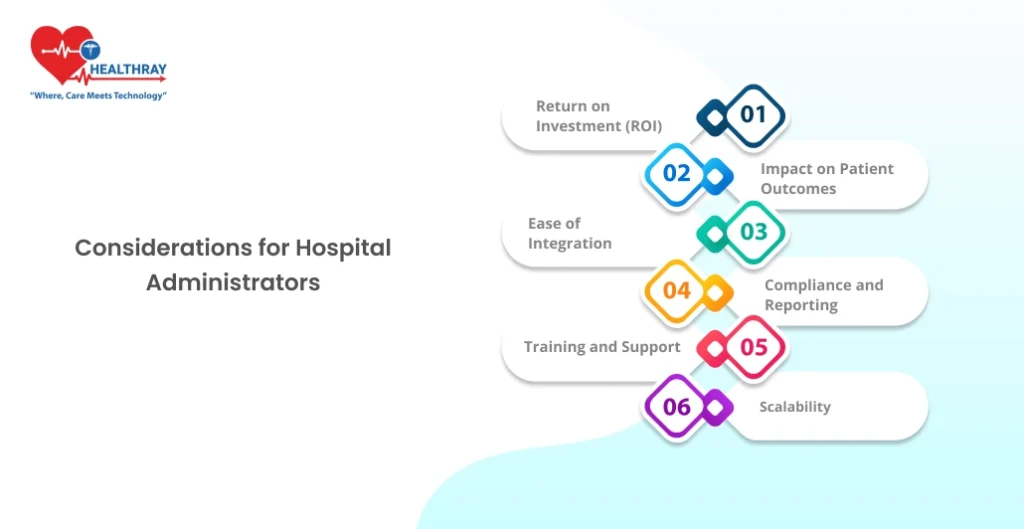
Hospital administrators oversee large, interconnected systems where efficiency, compliance, and patient outcomes are top priorities. Pharmacy management software can be a game-changer in achieving these goals, but it’s important to weigh the factors involved in its adoption. Here’s what administrators need to consider:
Return on Investment (ROI)
While the initial cost of implementing pharmacy management software may seem high, the long-term benefits often outweigh the expense. Reduced medication errors, optimized inventory management, and improved staff productivity contribute to significant cost savings over time.
Impact on Patient Outcomes
Medication errors are a major concern in hospitals. Pharmacy management software minimizes these risks by automating checks for drug interactions and ensuring accurate dispensing. This directly improves patient safety and satisfaction.
Ease of Integration
Hospitals rely on numerous systems, from electronic health records (EHRs) to billing software. Administrators should prioritize pharmacy solutions that integrate seamlessly with existing systems to avoid disruptions and maximize efficiency.
Compliance and Reporting
Hospitals must adhere to strict regulations regarding controlled substances, patient privacy, and reporting. Pharmacy management software streamlines compliance by generating automated reports and maintaining secure, auditable records.
Training and Support
Adopting new technology comes with a learning curve. Administrators need to ensure that vendors offer robust training programs and ongoing support to help staff quickly adapt to the new system.
Scalability
Hospitals are dynamic environments, and their needs can grow over time. Choosing a scalable solution ensures that the software can handle increased prescription volumes, expanded services, and more complex workflows as the hospital grows.
For hospital administrators, adopting pharmacy management software isn’t just about improving the pharmacy department. It’s a strategic move that enhances the hospital’s overall operations, boosts patient satisfaction, and ensures compliance.
Conclusion:
Pharmacy management software isn’t just transforming pharmacies; it’s reshaping healthcare as a whole. By streamlining operations, enhancing patient safety, and improving collaboration among healthcare professionals, it’s becoming an indispensable tool for modern healthcare systems.
Healthcare professionals benefit from real-time access to vital patient information. Pharmacy managers see smoother workflows and better compliance. Software developers have the opportunity to innovate in this growing field. Hospital administrators gain from improved efficiency and cost savings. Each stakeholder stands to gain significantly from this technology.As the healthcare industry continues to evolve, the Hospital Management System will remain at the forefront of innovation. It’s not just a tool—it’s a catalyst for better care, stronger operations, and a more connected healthcare system.
